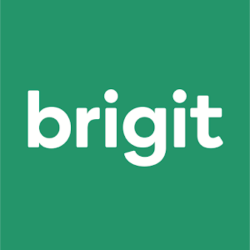Credit Card Cash Advances: Emergency Funds When You Need Them Most

In times of financial emergencies, securing swift access to funds is paramount. Credit card cash advances stand out as a rapid solution, offering instant cash from your available credit line. Facing situations like unexpected medical expenses, crucial home repairs, or last-minute emergencies can be less daunting with the option to quickly convert part of your credit limit into cash.
However, the convenience of cash advances comes with the need for careful consideration. It’s vital to understand their impact on your credit, the terms attached, and effective repayment strategies. This guide is designed to provide you with a comprehensive understanding of credit card cash advances, helping you to utilize this option effectively while safeguarding your financial well-being.
Understanding Credit Card Cash Advances?
A credit card cash advance allows you to withdraw cash from your credit limit. Accessible via ATMs, banks, or convenience checks, it offers quick funds for emergencies.
However, it carries higher interest rates and fees, with interest accruing immediately. Due to these costs, using cash advances cautiously and planning for quick repayment is essential.
Navigating the Costs of Cash Advances
When considering a credit card cash advance, it’s essential to understand the financial implications.
- Interest Rates: The interest rate for cash advances is often higher than that for purchases. While the exact rate varies by credit card issuer, it can range from about 20% to 30% APR or even higher, depending on your credit card terms and creditworthiness.
- Transaction Fees: Cash advance fees typically range from 3% to 5% of the total amount withdrawn, with many credit card issuers setting a minimum fee amount, such as $10.
The Impact of Cash Advances on Your Credit
Taking a cash advance from your credit card can influence your credit health in several ways. Here’s a concise look at its potential impact:
Credit Utilization: Cash advances increase your credit utilization ratio—the amount of credit you’re using compared to your credit limit. A higher ratio can negatively affect your credit score, as it indicates higher usage of available credit.
Debt Accumulation: Frequent reliance on cash advances may lead to accumulating debt, which can become challenging to manage, potentially leading to missed payments or high balances that hurt your credit score.
Inquiries and New Debt: While the act of taking a cash advance doesn’t directly result in a hard inquiry on your credit report, the increased debt and potential for higher utilization can indirectly influence your creditworthiness.
Responsible use of cash advances, with an understanding of their impact on your credit and a plan for quick repayment, can help mitigate negative effects. However, considering alternatives with lower costs and less impact on your credit utilization is often advisable.
Is Credit Card Cash Advances Right for You?
Deciding whether to use a credit card cash advance involves weighing the advantages and disadvantages and considering alternative financial solutions.
Pros
- Immediate Access to Funds: Cash advances provide quick cash in emergency situations.
- Convenience: Easily accessible through ATMs or bank withdrawals.
- No Collateral Required: Unlike some loans, cash advances don’t require collateral.
Cons
- High Interest Rates: Cash advances typically have higher interest rates than regular credit card purchases.
- Additional Fees: Expect transaction fees, ATM fees, and sometimes, a higher interest rate from the day of the transaction.
- No Grace Period: Interest accrues immediately, increasing the overall repayment amount.
Making an Informed Decision on Cash Advances
Credit card cash advances offer immediate access to funds, presenting a quick solution for urgent financial needs. Yet, their high interest rates and fees necessitate careful consideration. It’s vital to understand the details of cash advances, including their financial implications, and view them as a last resort for emergencies after exploring all other options.
Seek Financial Advice
Considering a cash advance? Consulting with a financial advisor can provide valuable insights, helping you to evaluate your situation and alternative financial solutions. This guidance ensures that any decision to proceed with a cash advance is well-informed and in harmony with your broader financial strategy.
Remember, thorough exploration of alternatives and informed decision-making are crucial steps toward maintaining financial stability.
Discover More Fast Cash Options
- HELOC Loans Unlocked: How Do They Work?
- Borrow from Retirement With A 401k Loan: A Comprehensive Guide
- Title Loans Explored: Your Guide to Borrowing Against Your Car
- Mastering Credit Cards: Types, Benefits, and Strategic Use
- Credit Card Cash Advances: Emergency Funds When You Need Them Most
- Home Equity Loans Explained: Unlocking Your Home’s Financial Power
- Pawn Shop Loans Unlocked: Your Ultimate Guide to Quick Cash and Smart Borrowing
- Peer-to-Peer Lending for Bad Credit: Unlocking Financial Opportunities
- Drive Away Happy: Your Complete Guide to Auto Loans and Buying a Car
- Unlock Your Dream Home: A Stress-Free Guide to Understanding Mortgages







